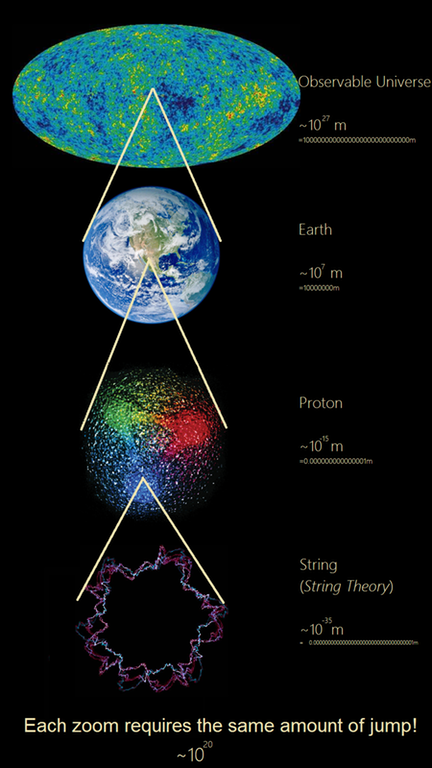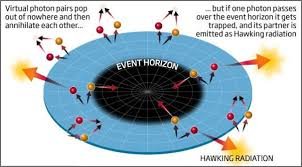
I'm not sure when it began but unless my HS physics teacher was lying (which the jury is out on) pretty well since the atom there's been a group of people that choose to believe the current smallest discovery is the bottom of the barrel and we just keep discovering more and more as technology let's us. The same way astronomical theories were nearly political in some centuries and true paradigm shifts had to wait for their creators to die, there will always be a select few who are headstrong about a current theory. Especially when it just raises further questions.
Disclaimer: I am not equipped to explain this properly. If someone here knows what they're talking about I'd love an ELI5 on it. Here's my best attempt:Space everywhere may seem empty, but it has properties, one of which is that on an extremely small scale it spontaneously pops apart into particles and anti-particles, like, a jillion times a second. They fly apart real hard, but anti-things are really strongly attracted, so they slam back together and it's like it never happened. As far as anything else is concerned it never did! But when this happens just at the event horizon of a black hole (inside of which, nothing gets out), while one particle can get drawn in by the enormous gravity, the other MIGHT escape before it can recombine with its anti-partner. The space which lay within the black hole's event horizon has lost energy! This event is pretty unlikely, so it takes a long, LONG time for a large black hole to evaporate mass. There is the bonus of evaporation accelerating; really small black holes evaporate violently (at least I think I remember reading that in an xkcd).
Hawking radiation

Hawking radiation, also known as Hawking–Zel'dovich radiation, is blackbody radiation that is predicted to be released by black holes, due to quantum effects near the event horizon. It is named after the physicist Stephen Hawking, who provided a theoretical argument for its existence in 1974, and sometimes also after Jacob Bekenstein, who predicted that black holes should have a finite entropy.
Hawking's work followed his visit to Moscow in 1973 where the Soviet scientists Yakov Zeldovich and Alexei Starobinsky showed him that, according to the quantum mechanical uncertainty principle, rotating black holes should create and emit particles. Hawking radiation reduces the mass and energy of black holes and is therefore also known as black hole evaporation.
@originalworks
Downvoting a post can decrease pending rewards and make it less visible. Common reasons:
Submit
You got a 1.73% upvote from @allaz courtesy of @dkmilon!
Downvoting a post can decrease pending rewards and make it less visible. Common reasons:
Submit